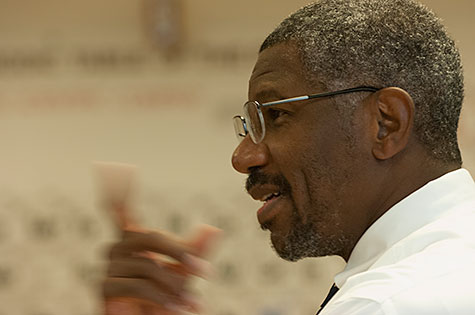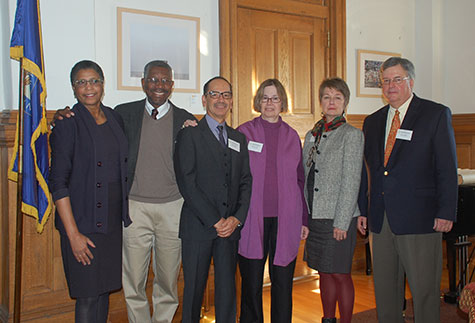
Gerald L. Early, PhD, the Merle Kling Professor of Modern Letters in Arts & Sciences at Washington University in St. Louis, has been appointed to the National Council on the Humanities, the 26-member advisory board to the National Endowment for the Humanities.
Early is one of five new members nominated by President Barack Obama and confirmed by the U.S. Senate. All five were sworn in Nov. 14 at the National Council’s fall meeting in Washington, D.C.
“We are honored to welcome such a distinguished group to the National Council,” said Carole Watson, acting chair of the NEH. “Together, they contribute depth of scholarship, expertise, and leadership in essential areas of the humanities.”
Early has held various positions at WUSTL since arriving on campus in 1982, including professor of English, co-director of the American Culture Studies program, and director of African and African-American Studies and of the Center for the Humanities, all in Arts & Sciences.
Early is author of A Level Playing Field: African American Athletes and the Republic of Sports (2011); One Nation Under a Groove: Motown and American Culture (1994); and The Culture of Bruising: Essays on Prizefighting, Literature and Modern American Culture, which won the 1994 National Book Critics Award.
He serves on the board of advisory editors of The Oxford Companion to African-American Literature. He has served as a consultant to five Ken Burns films, is a trustee of the Missouri History Museum and of the National Humanities Center, and has been a longstanding advisory board member of The Antioch Review.
The National Council on the Humanities meets three times a year to review grant applications and to advise the NEH chairman. National Council members serve staggered six-year terms.
